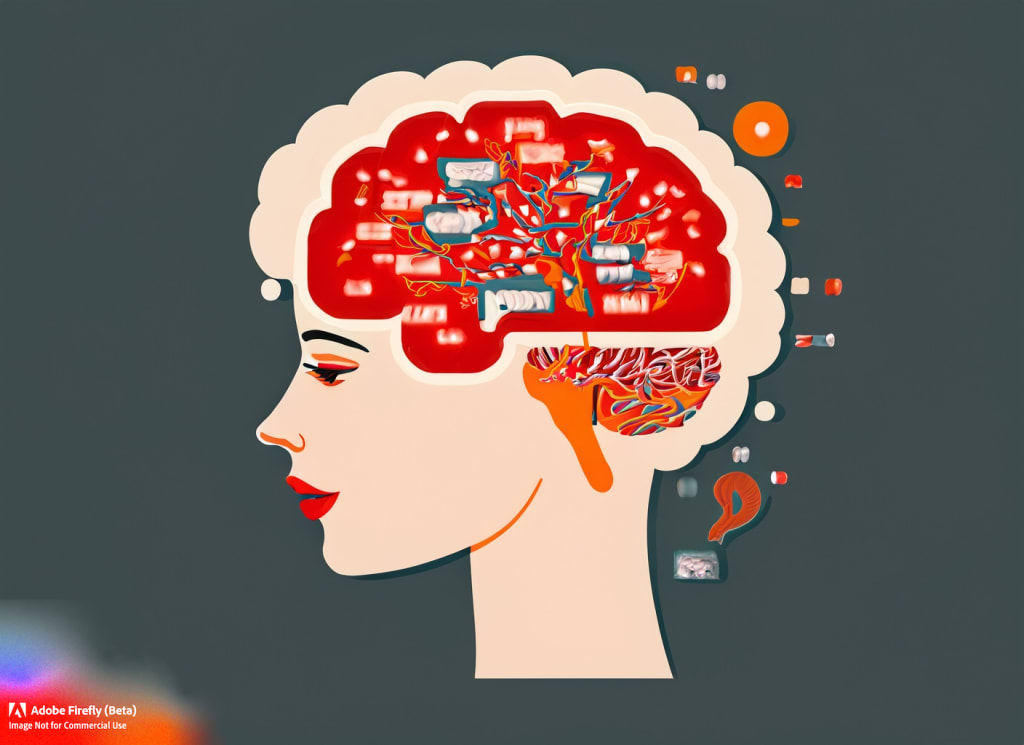
Title: Embracing Mindfulness: Nurturing a Calm and Focused Mind
Introduction
In our fast-paced, technology-driven world, finding inner peace and maintaining a clear focus can feel impossible. However, mindfulness offers a valuable antidote to modern chaos. Mindfulness is a state of non-judgmental awareness, where we intentionally pay attention to the present moment, fully engaging with our thoughts, feelings, and sensations. In this article, we explore mindfulness's benefits and how it can be incorporated into our daily lives. Mindfulness can help us to become more aware of our thought patterns, and to let go of unhelpful thoughts and feelings. It can also help us to become more compassionate and understanding of ourselves and others. Finally, it can help us to become more resilient and better able to cope with difficult situations.
Understanding Mindfulness
Mindfulness is about being present in the here and now. It involves observing our thoughts, emotions, and bodily sensations without judgment or attachment. By practicing mindfulness, we cultivate an attitude of curiosity and acceptance towards our experiences. This allows us to respond to life's challenges with enhanced clarity and equanimity.
Benefits of mindfulness
Stress Reduction: Mindfulness has been widely recognized for its ability to reduce stress. By paying attention to the present moment, we shift our focus away from worries about the past or future, helping to alleviate anxiety and promote relaxation.
Improved Mental Well-being: Regular mindfulness practice can lead to enhanced mental well-being. Research suggests that it can reduce symptoms of depression and increase overall life satisfaction. By being aware of our thoughts and emotions, we gain insight into our inner world, enabling us to respond more skillfully to difficult situations.
Enhanced Focus and Concentration: In a world filled with distractions, mindfulness helps sharpen our focus and concentration. By training our minds to stay present, we become less prone to drifting off into unproductive thoughts, allowing us to accomplish tasks with greater efficiency and clarity.
Emotional Regulation: Mindfulness equips us with the tools to navigate our emotions more effectively. By observing our feelings without judgment, we develop a greater understanding of their underlying causes and can respond to them in a more balanced and compassionate way.
Incorporating mindfulness into your daily life
Formal Practice: Setting aside dedicated time for formal mindfulness meditation can be a powerful way to cultivate mindfulness. Start with just a few minutes each day, gradually increasing the duration over time. Focus on your breath, bodily sensations, or engage in guided meditation using apps or online resources. Mindfulness is the quality or state of being aware of something. It is a mental state that involves paying attention to your thoughts, feelings, and sensations in the present moment.
Mindful Eating: Transform the simple act of eating into a mindful practice. Pay attention to the colors, smells, and tastes of your food. Chew slowly, savoring each bite. Engage all your senses, appreciating the nourishment and pleasure that food brings.
Mindful Movement: Engage in activities like yoga, tai chi, or simply walking, with a mindful approach. Direct your attention to the sensations in your body, the rhythm of your breath, and the surrounding environment. By staying present during movement, you can enhance your physical and mental well-being. For instance, when walking, focus on the different muscles that you're using, the feeling of the ground beneath your feet, and the sounds and smells around you.
Mindful Technology Use: In a digitally connected world, it's essential to be mindful of our technology use. Set boundaries by designating specific times for checking emails or social media. Practice being fully present during conversations or activities, setting aside distractions and truly engaging with the present moment.
Conclusion
In a world that often encourages multitasking and constant stimulation, mindfulness offers a much-needed pause—a way to reconnect with our inner selves and the present moment. By embracing mindfulness, we can cultivate a calmer, more focused mind, leading to improved well-being and fulfillment. Remember, mindfulness is a practice that requires patience and consistency, but the rewards are worth the effort. So, start your journey today, and let mindfulness guide you towards a more balanced and meaningful life.
About the Creator
Areeba Ayub
Since your vocabulary and pronounciation improve by reading regularly,it eventually makes you a better writer and reader. We are not just talking about writing fiction






Comments
There are no comments for this story
Be the first to respond and start the conversation.